Tombées du Camion: Inside a Parisian Cabinet of Curiosities
Tombées du Camion (photograph by Matthias Biberon)
Tucked away in a forgotten passageway, between the upmarket fashion boutiques of Rue des Abbesses and the fall from grace to the seedy strip of Pigalle, you’ll stumble upon one of the most unusual and captivating spaces in Paris. The white whale of the Sacre Coeur is just a cobblestoned stroll away; the café where Audrey Tautou’s Amélie waitressed in the offbeat film is just around the corner on Rue Lepic. And it’s easy to imagine Amélie being a frequent customer of the quirky boutique Tombées du Camion. (The name of the store, meaning items fallen from the back of a truck, cheekily hints at stolen goods.)
I myself stumbled upon this spot on my first trip to Paris. It never left my memory, and when I eventually moved to the city it was the only place I left my CV. I now pass hour after happy hour working there, steeped in anachronistically organized chaos, never knowing quite how to sum up what we sell. To step inside this bizarre bazaar is to step out of sync with the rest of the modern world. So don’t be surprised if it takes a moment to recalibrate as you contemplate a hoarder’s paradise of vintage ephemera illuminated by industrial lamps and lined with old wooden boxes and crates — everything is in its right place. And it’s a lot of things, with each item in excess.
The author in the store (photograph by Louise Carrasco)
The stock is salvaged from the cobwebbiest corners of factories and vide-greniers (“attic sales”) in secret locations around France. There are French porno banners from the 1970s, rusted mortuary plaques (Je ne t’oublierai jamais, ”I will never forget you,” in gold lettering), unused flasks of Élixir Parégorique (that’s an opium cure for diarrhea, by the way). Most of these items are fabrication française (made in France), like the Gauloises issued to French troops in World War II; a cloud of nostalgia now that everyone in the smoking capital of the world puffs on electronic cigarettes. Every object has a story. And I’ve amassed a pretty interesting French vocab list to tell each story.
If you feel hundreds of eyes on you, don’t be alarmed. The eyes are an idée fixe: beady blue taxidermy eyes, disembodied dolls’ eyes that wink inscrutably from under thick lashes, round ones in delicate blown glass, perennially surprised. Once you’ve had you’re fill of eyes, you can move on to all manner of mismatched body parts: arms, legs, dolls with human hair, heads from the Bébé de Paris factory that closed circa 1917.
Charles Mas (photograph by Matthias Biberon)
You would have to conclude that Charles Mas — the curator of this vast array of bits, bobs, and bibelots — is a grown man who likes to play with dolls a little too much. “Je suis un peu maniac!” (“I’m a little bit fastidious”), he warned me at the beginning of my first shift. Looking around at the improbable combinations of knickknacks arranged in ornate patterns along the walls, it would be hard to disagree. It would be hard to settle on the weirdest object in the store, but according to Mas, it’s the packets of 1930s toilet paper from Lyon. “It’s the missing link between the urinal of Marcel Duchamp and Wim Delvoye’s Cloaca,” he says loftily. But this isn’t high art, it’s the art of the everyday, as most of us never knew it. And it sells like crusty croissants.
Where does his strange affinity for strange objects come from? “My parents were collectors,” Mas explains. “Consequentially I came to hate collectors and their obsessions. I wanted to show the other value of objects — the value of the material, the value without the rarity, the value without the value.”
Everything in its place (photograph by Matthias Biberon)
Shop décor (photograph by Matthias Biberon)
This is someone who will look you right in the eye and tell you that there’s poetry in a tub of ping-pong balls — a stretch even for a Frenchman. And the strange charm of the store is that it does actually put the poetry in the ping-pong balls, and other items that suddenly become special when amassed in this very unusual context.
Spending the weekend at the larger, recently reopened Tombées du Camion store in the Marché aux Puces de St Ouen, the atmosphere is completely different. But even in a shantytown of antique porcelain dishes and crystal chandeliers, this store stands out. One customer told me, only half-jokingly, that he had just come from the Surrealist Objects exhibition at the Pompidou and couldn’t tell the difference.
Cigarette-shaped brooches (photograph by Matthias Biberon)
Fish-shaped business card (photograph by Matthias Biberon)
Working in this surrealist supermarket is an interesting experience, to be sure. A typical day might bring a woman who buys a brooch in the shape of a sexy stilettoed leg for her amputee friend. Or an artist who wants to inflate female condoms with our celluloid baby dolls inside. (BYO condoms.) Someone drops by looking for rubber chicken legs, and it’s not a silly question. The boss pulls up outside — either on his motorcycle or in the beat-up 1960s Citroën truck and store mascot — and rushes in to explain the function of an arcane item (“that metal rod is used to crush sugar cubes for absinthe”), show off his latest find (“hundreds of embroidery scissors in the shape of the Eiffel Tower”), or assign a task I’ve never been asked to perform anywhere else (“Go through these 1940s postcards and find all the photos of women in bathing suits.” These are strictly not to be sold and must be handed directly to him for a “special project”).
The locals are as astonished as the tourists. And it’s changed my view of Paris — not just because I find myself wanting everything in Paris to be orderly, color-coordinated, and symmetrical. I leave the little Montmartre hole-in-the-wall at the end of the day feeling that the whole city is full of stories and secrets. It’s opened my eyes to the beauty of tiny details and fleeting moments here. The dolls’ eyes wink at me. And I wink back.
photograph by Louise Carrasco
Tombées du Camion is at 17 Rue Joseph de Maistre (métro Abbesses) in Paris, France. And in the Marché aux Puces, Marché Vernaison, Allée 1, at Stand 29 (métro Porte de Clignancourt).




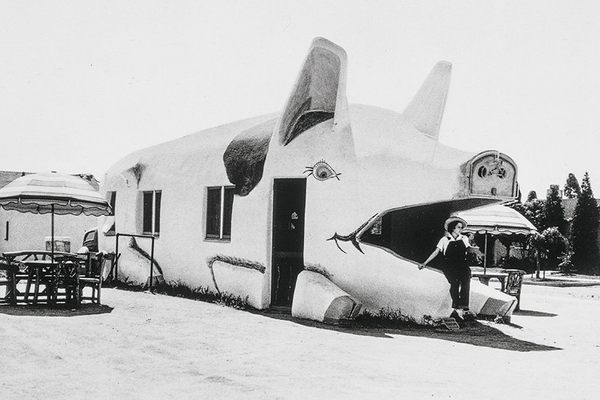


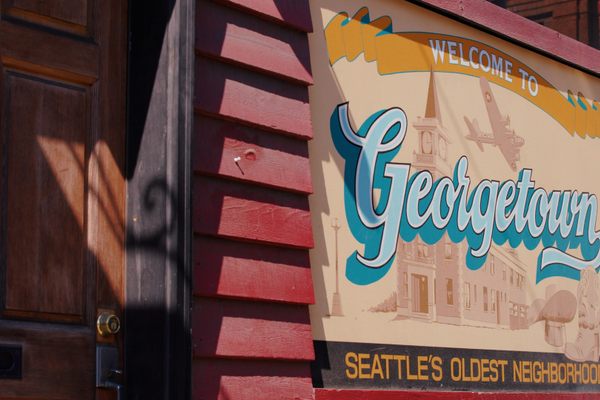
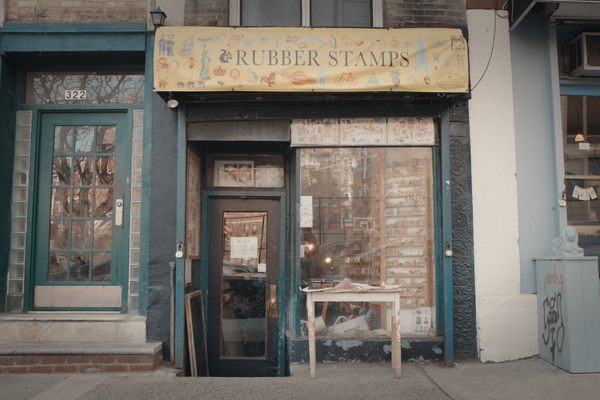
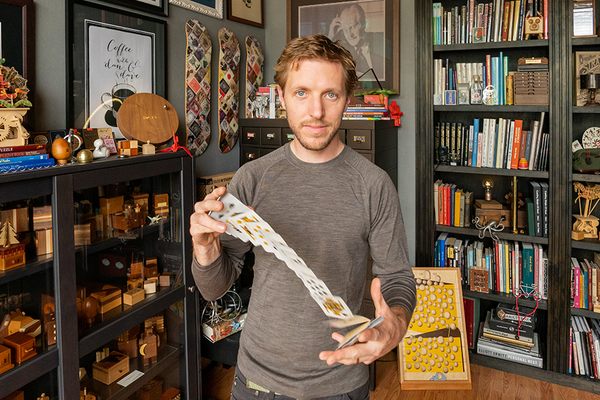
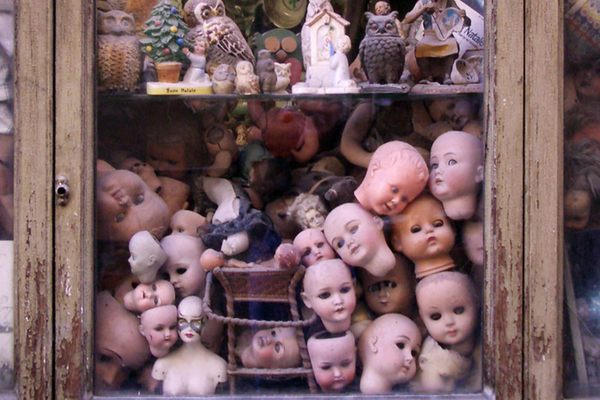





Follow us on Twitter to get the latest on the world's hidden wonders.
Like us on Facebook to get the latest on the world's hidden wonders.
Follow us on Twitter Like us on Facebook